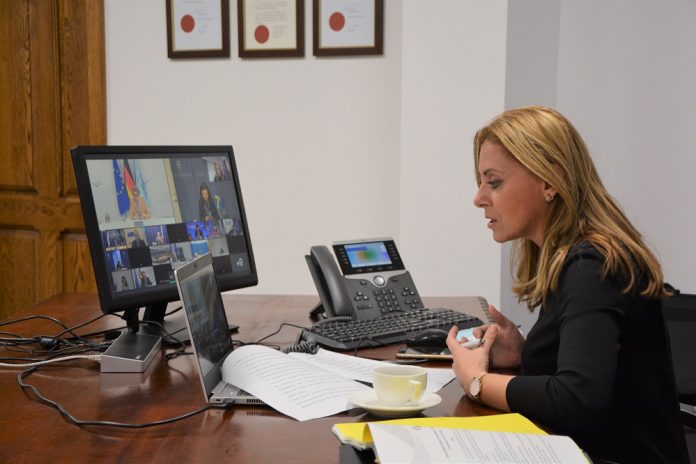“Malta believes that a European Education Area, as the policy framework for European cooperation in education and training after 2020, can benefit European economies by keeping economies competitive through innovation, digitalisation and environmental sustainability ”.
This was stated by the Minister of Education Justyne Caruana during a virtual meeting during which the ministers of education of the European Union met to discuss the establishment of a European Education Area until 2025.
The discussion focused on, ‘Shaping the European Education Area and the next strategic framework for European cooperation in Education and Training – The Way Forward’.
The COVID-19 pandemic has brought new challenges to education and training institutions: among these even disruptions to life cycles as we know them, including virtual learning. The aim of the discussion was to exchange ideas on the strategic goals for European cooperation in order to ensure that education and training continue to play a vital role when it comes to shaping European society and our future economy.
During her speech, Minister Caruana said that Malta notes that the emphasis on vocational education and training (VET) has remained marginal to the overall goals of the European Education Area. But she stressed that VET is a crucial principle for a flexible and competitive labor market and for long-term economic reforms. She mentioned how our country has made great strides in this area, including: an investment of € 12 million for state-of-the-art workshops in all schools in the State, and also that VET enjoys popularity as much as other subjects so much so that 55% of high school students chose at least one VET subject.
She also spoke about the challenges faced during the COVID-19 pandemic and what effect they had on the education and training sectors. She said that Malta is cautious about the proposed targets, as the pandemic is still ongoing and the tangible and real effects of COVID-19 have yet to be carefully researched and assessed. Here also Minister Caruana spoke about the way our country has worked with the implementation of more than 50 measures in all schools on the advice of the Health Authority and also the creation of a virtual school, apart from intensive training both to educators and also parents.
The Minister of Education said that the sudden shift to virtual learning has created challenges that could exacerbate inequalities in access to high-quality education. Therefore, improving quality and training remains one of the main pillars for a successful European education strategy. This requires large and timely funds and investments.
Minister Caruana said that while Malta welcomes the scope of the political framework for European cooperation in education and training after 2020 proposed, but the framework should give priority to inclusion, the issues of gender and multicultural and intercultural education to reduce the risks of exclusion.
She also said that in the future, the framework should aim to reduce the fragmentation of the whole system, strengthen its position on VET, guarantee greater flexibility for Member States, and ensure greater sensitivity towards inclusive multicultural education.
Malta also welcomes the funding provided under the ‘Digital Europe’ Program aimed at advanced digital skills in the fields of artificial intelligence, cybersecurity and high performance computers among others. It is Malta’s belief that such funding will benefit Member States and overall European economic performance and growth in the coming years.
Minister Caruana said that the EEA has a crucial role to play in guiding the way forward and could serve to enable more flexible, coherent and accessible education systems for more opportunities in employability, inclusion and engagement. community.










